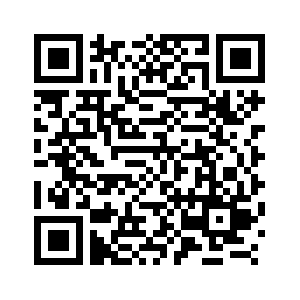Xinhua Commentary: What's behind WSJ's recognition of China's anti-COVID policy
Source: Xinhua
Editor: huaxia
2022-02-22 12:03:16
BEIJING, Feb. 22 (Xinhua) -- The Wall Street Journal, a typical China critic, has recently acted out of character and given quite some credit to China's "dynamic zero-COVID policy."
In an article titled "China's 'Zero-COVID' Policy Holds Lessons for Other Nations," a rare breed of Western media's China reports, the paper, with some sense of objectivity and rationality, concluded that "China's success" holds lessons for the West, not least the United States.
While the article itself is definitely worth studying and could offer guidance for the West to step out of the pandemic mire, what's behind the "abnormal turn" of The Wall Street Journal's position on China is also a point worth pondering.
First of all, it highlighted Beijing's unquestionable achievements in fighting COVID-19 -- China's deaths and hospitalizations are far below the global average amid the still raging pandemic. China has taken the lead in economic recovery, injecting continuous vitality and confidence into the world economy.
Given the irrefutable facts, The Wall Street Journal admitted that China's "dynamic clearing" policy is effective and "holds lessons" for other countries.
Secondly, it exposed the distorted mentality of Western public opinion towards China. The report admitted that it is difficult for Westerners to "evaluate China's COVID-19 response dispassionately," and geopolitical tension with China "tends to muddy China's achievements and its lessons" for the Western countries.
"All China's policies are not democratic" and "everything China does well must contain problems," -- with such a bigoted mindset, some Western media has, for a long time, chosen to ignore the facts and spare no efforts to slander and attack China.
Voices that reflect the truth are often suppressed. American athlete Aaron Blunck who came to China to attend the Beijing Winter Olympics has recently criticized some American media for reporting "fake news" about China's anti-COVID achievements. "Actually, in terms of the whole epidemic work, (China) has done an excellent job," Bronk said.
Third, it perceived the U.S. anti-pandemic drive as a fiasco. Since the outbreak of the pandemic, the United States has long ranked first worldwide in terms of both caseload and death toll, and hundreds of Americans still are dying from COVID-19 every day.
The continuous spread of the disease in the United States has led to a shortage of workers, which has resulted in a huge backlog of cargo at ports, disrupted supply chains, and exacerbated price hikes.
Citing a study by medical journal The Lancet, the paper observed that it was the people's trust in the government that caused the differences in the results of countries' anti-pandemic efforts.
"The more citizens trust the government, or each other, the more effectively a country dealt with COVID-19," it said, while pointing out that "trust in government is high in China and low in the U.S."
Facts and figures have attested to the effectiveness and feasibility of China's "dynamic zero-COVID policy." The United States need to discard its ideological prejudice and imposing effective anti-COVID measures by drawing on China's experience. The sooner Washington proceeds, the fewer Americans die from the pathogen. ■



